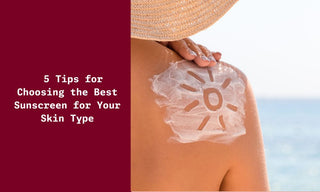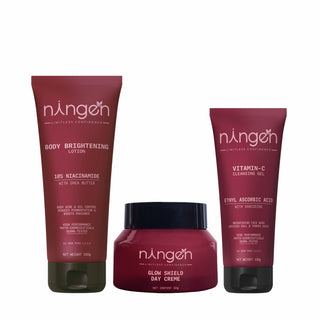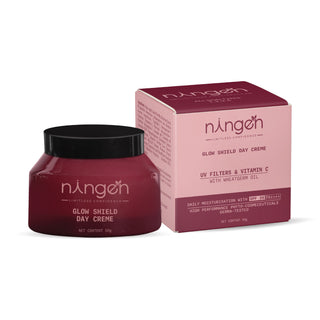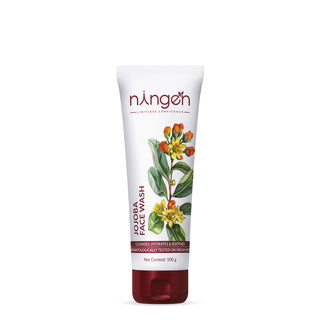Sunscreen isn’t merely a skincare item—it’s a true ally for your skin! Whether you’re heading out for a sunny beach day or just running errands, protecting your skin from harmful UV rays is a must. Given the numerous choices, choosing the right sunscreen for your skin type may feel like a tough task. Dry, oily, sensitive, or a combination—your skin deserves the perfect match to get the best results. In this blog, we’re breaking it down for you with 5 tips for choosing the best sunscreen for your skin type that keeps your skin safe, healthy, and glowing every day. Let’s get started!
In This Article;
- Different Types Of Sunscreens
- Best Sunscreen for Your Skin Type
- 2. Argan Oil: Liquid Gold for Hair
- 2. Look for Broad-Spectrum Protection
- 3. Choose Water-Resistant Formulations
- 4. Evaluate Ingredients Carefully
- 5. Ensure Ease of Application
- Final Thoughts
- TL;DR:
- Frequently Asked Questions
Different Types Of Sunscreens
Choosing the right sunscreen can feel like a daunting task, but understanding the different types can make it easier. Here’s a simple guide to assist you in choosing the right option:
- Chemical Sunscreens: These sunscreens feature ingredients such as oxybenzone and avobenzone that work by absorbing UV rays. While they're lightweight and easy to apply, they may not be ideal for sensitive skin.
- Physical (Mineral) Sunscreens: Featuring active ingredients like zinc oxide and titanium dioxide, these form a protective layer on your skin. They're skin-safe, especially for sensitive skin types, but may leave a white cast.
- Broad-Spectrum Sunscreens: Offering protection against both UVA and UVB rays, these sunscreens reduce the risk of premature aging and sun damage.
- Water-Resistant Sunscreens: Perfect for outdoor activities and swimming, they maintain their SPF for a period even after sweating or water exposure.
- Sunscreens with Additional Skincare Benefits: Look for options with extras like hyaluronic acid to hydrate dry skin or oil-absorbing properties for oily skin.
Choosing the perfect sunscreen for your skin type ensures effective sun protection and keeps your skin healthy and glowing.
Also read: How to apply sunscreens on the face?
Best Sunscreen for Your Skin Type
Finding the best sunscreen for your skin type can be a daunting task, but these five tips will improve your skincare routine and protect your skin from harmful effects.
Understanding your skin type is the foundational step in selecting the best sunscreen for your needs. This knowledge enables you to address your skin's unique characteristics and challenges effectively.
Determine whether your skin is oily, dry, sensitive, or a combination.
Determining your skin type can be straightforward if you know what to look for:
- Oily Skin: Characterized by a glossy sheen, visible pores, and frequent breakouts. If your skin feels excessively oily during the day, you most likely have oily skin.
- Dry Skin: Often feels tight, and may be rough or flaky. If your skin lacks moisture and has a dull appearance, it's probably dry.
- Sensitive Skin: Easily irritated or reactive to certain products. It may turn red or develop a rash after using new skincare items.
- Combination Skin: Exhibits both oily and dry areas. Usually, the T-zone (forehead, nose, and chin) tends to be oily, while the cheeks stay dry.
Consider Specific Needs for Each Skin Type
Every skin type has unique needs, particularly when it comes to sun protection:
- Oily Skin: Opt for a lightweight, oil-free, or gel-based sunscreen that won’t contribute to excess oil production. Non-comedogenic formulas are crucial to avoid clogging pores.
- Dry Skin: Look for sunscreens with hydrating components such as hyaluronic acid or ceramides to lock in moisture and prevent further dryness.
- Sensitive Skin: Mineral sunscreens containing zinc oxide or titanium dioxide are less likely to cause irritation and are excellent options for sensitive skin. Always do a patch test before fully using any new product.
- Combination Skin: Consider a balanced formula that addresses both the oily and dry areas of your face. You might choose a product that is moisturizing yet lightweight enough not to exacerbate oiliness.
By understanding and catering to your specific skin type, you can choose a sunscreen that not only protects your skin from the sun but also enhances your overall skincare routine. Consider these factors carefully to ensure your skin remains healthy, happy, and protected.
Also read: How to know your skin type?
Broad-spectrum sunscreens offer defense against both UVA and UVB rays, ensuring your skin remains safe and healthy. This type of protection is crucial because it shields you from the harmful effects of the sun, such as skin cancer and premature aging. By covering both spectrums, your ideal sunscreen will not only prevent sunburn but also maintain your youthful glow, regardless of whether you have oily skin, dry skin, or sensitive skin.
Understand the Difference Between UVA and UVB rays
Before picking up sunscreen, it's imperative to understand the difference between UVA and UVB rays. UVA rays reach deep into the dermis, the thickest layer of the skin, and are a major cause of premature aging and wrinkles. They can even penetrate through clouds and glass, making it essential to wear protection even when indoors near windows.
On the other hand, UVB rays damage the skin's outer layers and are the main culprit behind sunburns. UVB exposure is linked more directly to skin cancer. A balanced sunscreen that targets both UVA and UVB rays protects the entire body, allowing you to enjoy outdoor activities without worry.
Importance of SPF Rating
When it comes to choosing the best sunscreen for your skin type, never overlook the importance of a high Sun Protection Factor (SPF). Dermatologists generally recommend selecting a sunscreen with an SPF rating of at least 30. An SPF 30 sunscreen blocks approximately 97% of UVB rays, significantly reducing the risk of sun damage. For those with sensitive or acne-prone skin, choose formulations that include zinc oxide or hyaluronic acid to soothe and protect without heavy chemical ingredients.
Remember, reapplication is key, especially if you're swimming or sweating, so consider water-resistant sunscreens for prolonged outdoor activities. With an appropriate SPF, you're taking the first step toward a skin-safe and skin-healthy lifestyle, effectively incorporating reliable sun protection into your skincare routine.
Below is a quick guide to assist you in selecting the perfect sunscreen:

When it comes to protecting your skin from the harmful effects of the sun, choosing the perfect sunscreen can be a daunting task. One essential factor to consider is the formulation of your sunscreen, especially if you plan to engage in outdoor activities. By opting for water-resistant sunscreens, you can ensure that your skin remains safe and healthy even during the most intense adventures.
Benefits of Water-Resistant Sunscreen for Outdoor Activities
Water-resistant sunscreens are your ideal companions for any outdoor activity, be it swimming, hiking, or a beach day. These sunscreens are specially designed to adhere to your skin better than regular sunscreens, reducing the chance of it washing off when you sweat or take a dip in the pool. This means longer-lasting protection against UV rays, helping to prevent skin cancer, sun damage, and premature aging.
The added water-resistant feature allows you to enjoy beach or pool days without the constant worry of reapplying sunscreen after every splash. For those who love the great outdoors, this can mean the difference between having fun in the sun and suffering the harmful effects of inadequate sun protection.
Choosing the best sunscreen for your skin type involves a careful examination of its ingredients. This step is crucial as it determines how effective the product will be in protecting your skin from harm without causing irritation or other issues. Different sunscreens use a variety of active ingredients to offer protection, and understanding these can help you make an informed choice. For example, zinc oxide and titanium dioxide are often recommended for their broad-spectrum protection, making them ideal for sensitive and dry skin types. Conversely, chemical sunscreens containing ingredients like avobenzone and oxybenzone absorb quickly and might suit those with oily skin, as they tend to leave less of a white cast.
Avoid Common Irritants and Allergens
It is essential to be cautious about potential irritants and allergens when selecting a sunscreen. Common irritants such as fragrances, parabens, and certain preservatives should be avoided, especially for those with sensitive skin, as they can lead to redness, itching, or breakouts. To ensure your sunscreen is skin-safe and promotes skin health, look for products labeled as "hypoallergenic" or "dermatologist-tested." Sensitive and acne-prone skin types might find relief with sunscreens that omit these common triggers.
When it comes to choosing the best sunscreen for your skin type, ease of application is key. The last thing you want is a product that feels like a chore to apply, especially if you're trying to incorporate it into your daily skincare routine. A sunscreen that's quick and easy to use means you're more likely to apply it regularly, ensuring your skin stays protected from harmful effects of the sun, including premature aging and skin damage.
Also read: How to apply sunscreen for maximum protection?
Choose Textures That Layer Well With Other Skincare
Choosing a sunscreen texture that seamlessly layers with your existing skincare products can make a significant difference. If your skin feels oily or greasy, or if your makeup slides off by midday, you may be dealing with a sunscreen that doesn't layer well. Consider sunscreens with lightweight, gel-based formulations if you have oily skin, or hydrating lotions if you have dry skin. These textures are designed to work harmoniously with serums and moisturizers, ensuring that they don’t disrupt your skincare routine. For combination skin, a lotion that strikes a balance between hydration and oil control is ideal.
Select Formulas That Absorb Quickly and Don’t Leave a Residue
Nothing is more frustrating than a sunscreen that leaves a sticky residue or an unsightly white cast. This is often a common issue with regular sunscreens that contain certain active ingredients. For a clean finish, opt for broad-spectrum sunscreens with zinc oxide or chemical formulations that promise no residue. Quick-absorbing sunscreens are not only convenient but they also minimize oil production on your skin, making them a perfect match for those with acne-prone or oily skin. When shopping for the ideal sunscreen, look for labels touting "quick absorption" and "no residue" to ensure a smooth, flawless finish.
Also read: Does sunscreen prevent tanning?
Final Thoughts
Choosing the right sunscreen is more than just picking a product off the shelf—it’s about understanding your skin’s unique needs and protecting it from harmful UV rays. By identifying your skin type, opting for broad-spectrum protection, and paying attention to ingredients and formulations, you can find the perfect sunscreen that keeps your skin safe, healthy, and glowing. Make sunscreen a non-negotiable part of your daily routine to enjoy the benefits of long-lasting, youthful skin. Remember, the best sunscreen is the one you’ll actually use—so choose wisely and protect your glow!
TL;DR:
Finding the best sunscreen for your skin type doesn’t have to be overwhelming. First, identify your skin type—whether it’s oily, dry, sensitive, or combination—and choose a sunscreen that caters to those specific needs. For oily skin, opt for lightweight, gel-based, or non-comedogenic sunscreens that won’t clog your pores. For dry skin, look for sunscreens that offer added hydration. Always choose a broad-spectrum sunscreen that protects against both UVA and UVB rays, and aim for an SPF of 30 or higher for daily use. If you plan on swimming or sweating, go for a water-resistant sunscreen for longer-lasting protection. Lastly, ensure the sunscreen has skin-friendly ingredients, avoiding harsh chemicals and choosing options that absorb quickly without leaving a residue. By following these tips, you can easily find a sunscreen that will keep your skin safe, healthy, and glowing.
Frequently Asked Questions
Q1. What is the difference between physical and chemical sunscreens?
Physical sunscreens create a protective barrier on your skin, while chemical sunscreens absorb UV rays.
Q2. How do I choose the best sunscreen for oily skin?
Look for lightweight, gel-based, or non-comedogenic sunscreens that won’t clog pores or add excess oil.
Q3. Can I use the same sunscreen for my face and body?
While possible, facial sunscreens are usually lighter and better suited for delicate facial skin.
Q4. Why is broad-spectrum sunscreen important?
Broad-spectrum sunscreens protect against both UVA and UVB rays, preventing premature aging and sunburn.
Q5. What SPF level is best for daily use?
Dermatologists recommend SPF 30 or higher for daily use to effectively block harmful UV rays.
Q6. How often should I reapply sunscreen?
Sunscreen should be reapplied every two hours or after swimming, sweating, or towel-drying.
Q7. Is water-resistant sunscreen necessary for swimming?
Yes, water-resistant sunscreens provide lasting protection during water activities or heavy sweating.
Q8. What ingredients should I avoid in sunscreen for sensitive skin?
Avoid fragrances, parabens, and harsh chemicals like oxybenzone if you have sensitive skin.
Q9. Can sunscreen prevent wrinkles and aging?
Yes, sunscreen protects against UVA rays that cause premature aging and wrinkles.
Q10. How do I know if sunscreen is suitable for my skin type?
Check the label for terms like “oil-free,” “hydrating,” or “gentle,” based on your skin type. Always patch test before full use.
Q11. Is SPF 50 good for Indian skin?
Yes, SPF 50 is a great option for Indian skin, especially if you're exposed to intense sun, as it offers high protection against harmful UV rays. Indian skin tones vary, but sun exposure can still lead to pigmentation, tanning, and long-term skin damage, even for darker skin tones. SPF 50 blocks about 98% of UVB rays, offering a higher level of protection compared to lower SPF values like 30. It's ideal for outdoor activities, extended sun exposure, or for individuals with sensitive or acne-prone skin. However, it's also important to reapply sunscreen every 2-3 hours for maximum effectiveness.
Q12. Is PA +++ better than PA ++++?
Yes, PA ++++ provides a higher level of UVA protection than PA +++. The "PA" rating system indicates the level of protection from UVA rays, which are responsible for premature aging, dark spots, and skin cancer.
- PA +++ offers a moderate level of protection, suitable for daily activities with limited sun exposure.
- PA ++++ offers the highest level of UVA protection, ideal for extended sun exposure or intense outdoor activities.
So, if you spend a lot of time outdoors or in direct sunlight, PA ++++ would be a better option for superior UVA protection.










